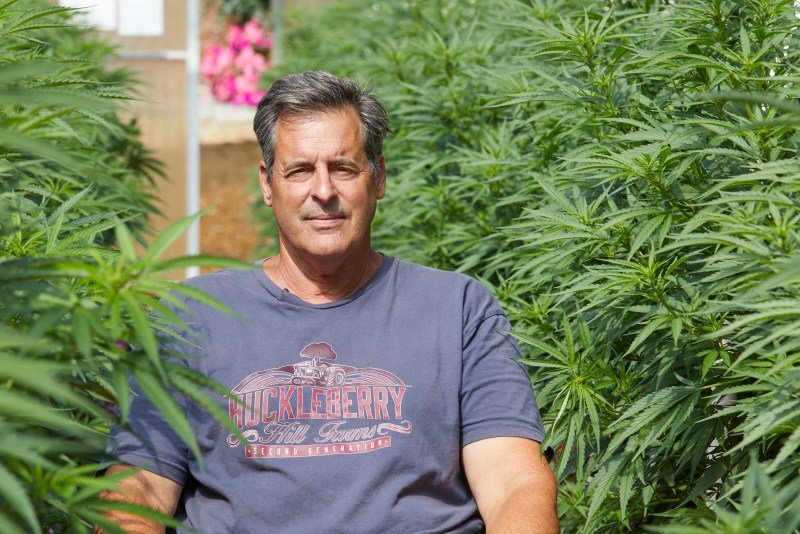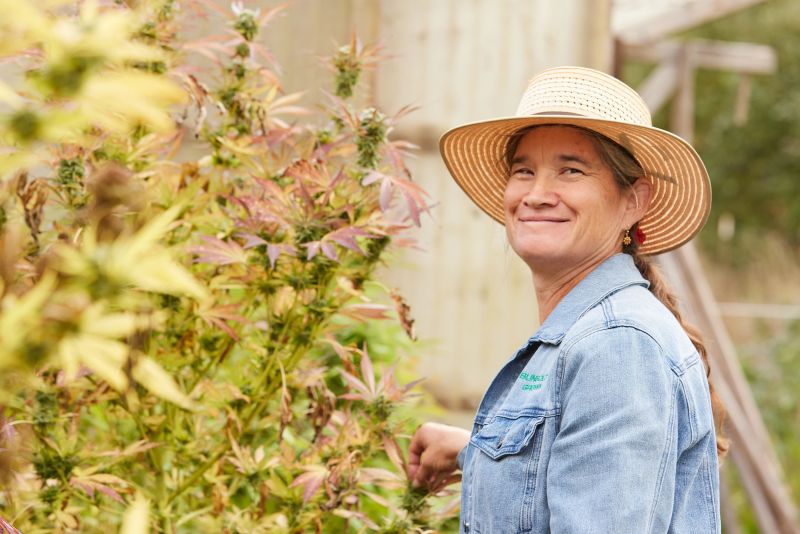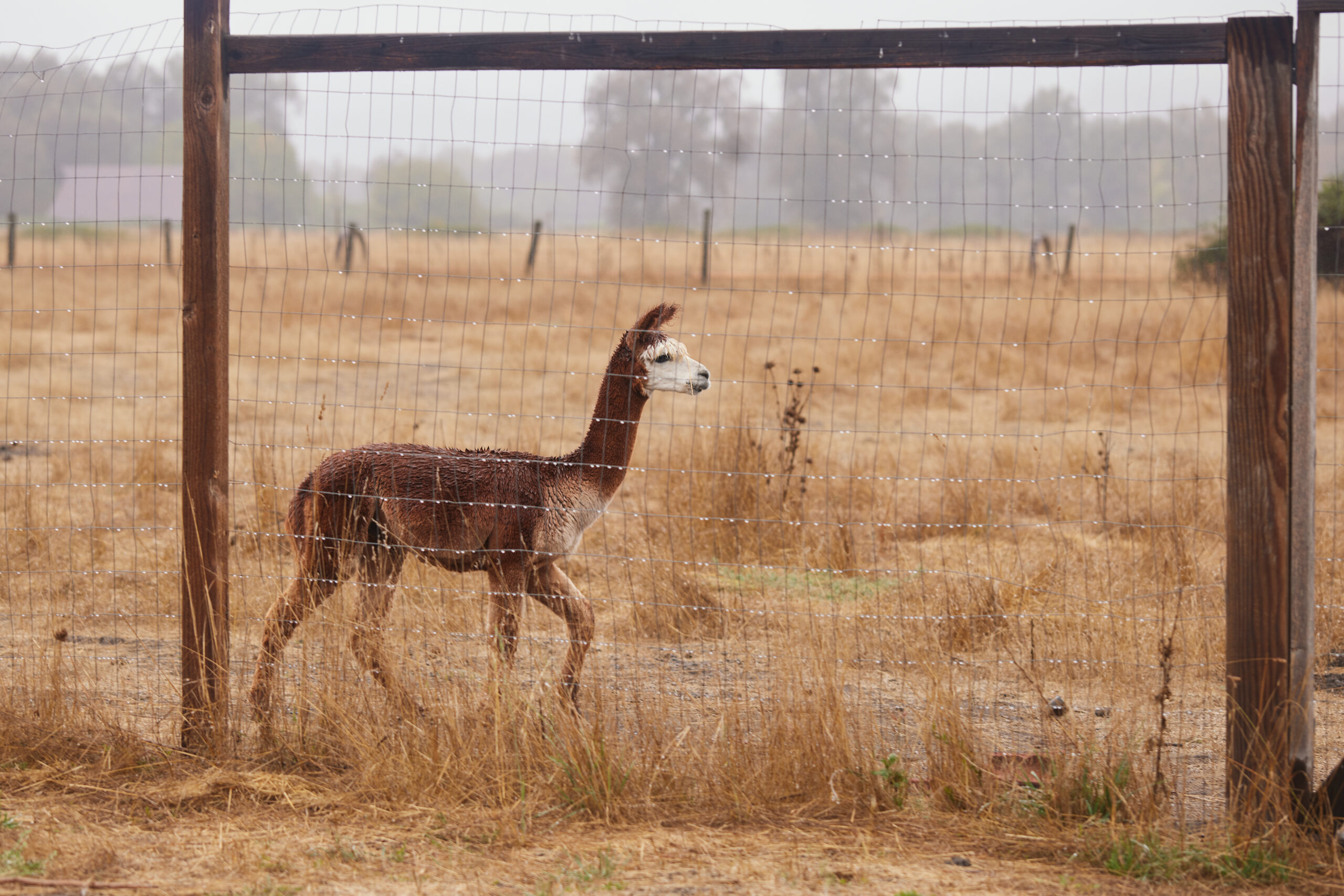Culture & industry
12 cannabis brands and organizations supporting veterans
Published
1 year agoon
By
admin
Many military veterans are barred from accessing medical cannabis due to its illegality at the federal level. While there are some promising studies and many personal anecdotes on the positive effects of weed on PTSD, veterans with no safe or legal access to the plant may never receive the care they need or may even face criminal charges.
To counter the deep-rooted stigma still surrounding the use of cannabis, especially by those who’ve served in the US military, many organizations led by veterans are advocating for reform, supporting open access to cannabis for veterans and for all.
Below, find 12 brands and organizations supporting veterans and advocating for legal cannabis.
Weed for Warriors Project (WFWP) – CA
The Weed for Warriors Project is a social justice organization urging change on the federal level by advocating for the use of compassionate alternative care for veterans. Volunteers with the Weed for Warriors Project are dedicated to educating lawmakers and providing support to veterans seeking legal access to cannabis.
Get involved here and support the WFWP.
Helmand Valley Growers Company (HVGC) – CA
Proceeds from the Helmand Valley Growers Co. (HGVC) go directly to the nonprofit Battle Brothers Foundation, where veterans are placed in individual and community-based mentorship programs to foster personal growth and community bonding. Veteran and Purple Heart recipient Bryan Buckley founded both organizations.
Donate directly to the Battle Brothers Foundation or offer support by purchasing cannabis products from HGVC.
HVGC was the first veteran-owned brand to be on-boarded onto the Weedmaps TEAL program.
Veterans for Holistic Alternatives (VAHA) – LA
Based in Louisiana and founded by veteran Gary Hess, the Veterans Alliance for Holistic Alternatives is an organization advocating for open access to medical cannabis for veterans. Through educational outreach, volunteer support, and policy reform, VAHA aims to empower veterans and provide resources for accessing medical cannabis.
Donate here and support VAHA.
Veterans Cannabis Coalition (VCC) – CA
Through research, reform, and restoration, the Veterans Cannabis Coalition, founded by veteran Eric Goepel, aims to end the negative stigma surrounding cannabis. Advocacy, education, and policy initiatives are all part of the organization’s efforts to get veterans full and legal access to medical cannabis nationwide.
Santa Cruz Veterans Alliance (SCVA) – CA
The Santa Cruz Veterans Alliance is a team of California-based military veterans advocating for access to cannabis. It grows cannabis for its fellow veterans, and through the company’s Veteran Compassion Program, SCVA provides free lab-tested cannabis to more than 100 veterans every month.
Any veteran with proof of veteran status (DD214 or VA Card) and a valid doctor’s recommendation for medical cannabis can receive a donation of medical cannabis products at the SCVA dispensary in Soquel, California.
CNA Stores – MA
With dispensaries in Haverhill and Amesbury, Massachusetts, veteran-owned CNA Stores support East Coast veterans through donations to the Veterans Northeast Outreach Center (VNEOC). The organization provides continuous care for veterans and their families by addressing housing needs, community support services, and mental health support.
Donate here and support the VNEOC.
Brothers Mark Cannabis – CA
Founded and operated by US military veterans, Brother’s Mark Cannabis advocates for access to medical cannabis as a means to quell symptoms of combat-related PTSD and other service-connected disabilities.
The brand offers flower, concentrates, and vape cartridges, and proceeds from sales go to the non-profit Veterans Cannabis Group, which provides support and resources related to veteran care, job placement and networking opportunities, and education about all things cannabis.
Veterans Walk and Talk (VWAT) – CA
Fierce advocates for social justice, veterans rights, and cannabis and psychedelic research, the Veterans Walk and Talk was founded in 2016 with a mission to connect veterans with nature and community, giving space for healing and reflection.
Every month, the VWAT holds community outreach events, veteran one-on-one psychedelic and cannabis walk and talk therapy, and group hikes around Southern California, with additional chapters in Sacramento, CA and Oklahoma.
Show your support by becoming a member.
Trulieve – AZ, FL, WV, and GA
Trulieve recently partnered with the Disabled American Veterans (DAV), a non-profit that provides a range of personal, employment, and medical services to veterans and their families.
Through this partnership, Trulieve will be supporting DAV in multiple states:
- Florida: The brand will contribute $1 to a DAV donation fund for every TruSalute pre-roll produced in November, with expanded discounts for veterans. Select stores will also host patient certification events on Veterans Day with doctors on site.
- Arizona: Customers in Arizona will be able to support DAV by rounding up their purchase total as a donation, with expanded discounts for veterans.
- West Virginia: Expanded discounts for veterans.
- Georgia: Select stores will host patient certification events on Veterans Day with doctors on site.
Donate directly to DAV — this year, friends of DAV are matching all Veterans Day donations up to $75,000.
Charlie’s – AZ
Named after founder Quinn’s sweet dog, Charlie’s flower cones are not only loaded with award-winning flower, but sales of them help benefit the non-profit Soldier’s Best Friend — also founded by Quinn — which pairs veterans with either their own dog or a dog adopted by the non-profit from a local shelter. They then provide training that includes basic obedience, public outings, and tasks specific to each veteran’s PTSD or TBI symptoms.
The website states, “Once the dog is fully trained in all of these skills, it will be qualified as a Service Dog or classified as a Therapeutic Companion Dog.”
Donate directly to Soldier’s Best Friend or show your support by purchasing from Charlie’s.
SBF is a beneficiary of the MITA’s 3rd Annual Winter Charity Golf Tournament sponsored by Weedmaps.
Veteran Access Program (VAP) – MI
Based in Michigan, the Veteran Access Program helps bridge the gap between veterans and medical cannabis by providing access to the plant and pairing patients with dispensaries. The program received permission from the Michigan Cannabis Regulatory Agency (CRA) to provide eligible products to veterans by “pennying out” cannabis products through METRC, a cannabis compliance tracking system.
From their website, the program also accommodates veterans who are unable to leave their homes, “alternate accommodations such as licensed delivery will be used to ensure access to for veterans unable to visit a provisioning center. Each veteran will receive an allotment of licensed, tested cannabis products that have made their way through the proper regulatory channels.”
If you’re a veteran, you can apply here.
Xtreme Couture GI Foundation (XCGIF) – NV
Based in Las Vegas, Nevada, and created by six-time UFC Champion and army veteran Randy “the Natural Couture,” the Xtreme Couture GI Foundation was formed to raise money and awareness to assist combat veterans and their families struggling with financial burdens as they return to civilian life.
XCGIF runs four programs that support Veterans:
- Support and Assistance: XCGIF provides financial assistance to veterans in need via grants funded by donations — 100% of donations go to veterans.
- Transitional Mental Health: XCGIF provides mental health support to veterans and their families by funding therapy sessions and plant medicine retreats. It also facilitates opportunities for veterans to gather in community.
- Physical Wellness: With Merging Vets and Players (MVP), XCGIF provides weekly workout sessions and “huddles” where veterans can work on their physical and mental fitness and spend time in the community with their brothers and sisters.
- Troop Morale Visits: Randy travels the globe, spending time with troops at home and abroad. He also makes an annual visit to the USO Warrior and Family Center in Bethesda, Maryland.
Donate here to support XCGIF.
If you’re a veteran needing support, reach out to XCGIF here.
This article was reviewed by Jason Moore-Brown, Vice President of Veterans Advocacy and Engagement and Weedmaps’ first Veteran hire at its inception in 2008. Jason was a Captain in the US Army and GWOT Veteran prior to joining Weedmaps.
You may like
-


Getting THC Edibles in Your Edible Arrangement?
-


Is Cannabis Legal in California Right Now?
-


Germany: Trial against operator of Trier cannabis vending machine discontinued
-


The best energizing THC gummies of 2025 by Leafly
-


Mixed Messages From The Feds About Cannabis
-


Humboldt County extends deadline to pay marijuana cultivation taxes
Culture & industry
Huckleberry Hill Farms and the history of the Whitethorn Rose cannabis strain
Published
1 year agoon
March 12, 2024By
admin
In the heart of southern Humboldt lies Huckleberry Hill Farms, a legacy outdoor cannabis grow started by John Casali. Unlike many of the regulated farms that sprouted up in the wake of Prop 64, Huckleberry Hill stood through the war on drugs era, and its story is steeped in passion, struggle, and resilience. It also led to the creation of the award-winning Whitethorn Rose cannabis strain.
 Gina Coleman/Weedmaps
Gina Coleman/WeedmapsIn the late 1960s, Casali, a teenager then, was immersed in the art of cultivation, learning the process from his mother. “[She] was my guiding light. She taught me the tenderness required for plants to thrive,” he shared. But the harsh realities of the war on drugs cast a shadow over their beautiful farm life. “My parents decided to cease cultivation due to escalating law enforcement. They got afraid of the multiple helicopters in the air throughout the year, dropping guys down on wires and eradicating weed.”
“It was all I knew; it was all I wanted to do — cultivate and honor what my mom had taught me.” — John Casali
Casali remained rooted in his passion, but it would eventually lead to his arrest and 10-year prison sentence in 1996. “One morning, I woke up to 30 federal agents coming up my driveway. They held a nine-millimeter to my head, and for the next nine hours, they searched my place. A year and a half after that, they came back with an arrest warrant.”
 Gina Coleman/Weedmaps
Gina Coleman/WeedmapsHis arrest, considered one of the longest federal incarcerations for a non-violent cannabis offense, struck a harsh chord, especially for someone who’d never even received a speeding ticket before. And while serving time in prison, tragedy struck his family. His parents, who had been traveling and fishing for months aboard a commercial albacore boat, encountered a devastating accident, and Casali’s mother tragically passed away. He recalled this period as one of the most challenging phases of his incarceration. “Those years tested my spirit, but the community’s support kept me going.”
Casali was released in 2004, and he found himself in a changed landscape, one where attitudes toward cannabis had massively shifted — no more helicopters over properties. Still driven by his passion for cultivation, he resumed his cannabis journey and even received a symbolically powerful gift from a friend: a preserved plant cut that was used to breed the Whitethorn Rose strain, an honor and testament to him and his mother’s legacy.
 Gina Coleman/Weedmaps
Gina Coleman/WeedmapsThis genetic preservation — maintaining a strain for a decade — embodies an emotional journey where friendship, loyalty, and love for the craft transcend the bounds of time and adversity. Casali created this unique strain by crossing Paradise Punch and Lemon OG.
Paradise Punch had been borne from his mother’s collaboration and was crafted for its early harvesting properties, allowing it to avoid possible mold due to October rains. The Lemon OG was a gift from a friend; combining the two was a convergence of heritage and camaraderie. With time, the strain gained the notoriety it so rightly deserved.
Whitethorn Rose, a strain forged during the war on drugs, now blossoms in a reformed era. It’s a symbol of endurance, community resilience, and triumph.
Moreover, testing by Columbia University in New York revealed the specific complexity of Whitethorn Rose. It boasts over 60 different terpenes and a staggering 444 cannabinoids. One such rare terpene found in this strain is selinadiene, which carries potential therapeutic properties.
Its emergence in the regulated folds of California’s cannabis market is due to its persistence and the unbreakable spirit that defines Huckleberry Hill Farms. Collaborations with Belle, Frenchy’s Cannoli apprentice from Heritage Mendocino, amplified its presence, leading to multiple Emerald Cup wins. This year, over 90% of the farm is devoted to cultivating Whitethorn Rose.
 Gina Coleman/Weedmaps
Gina Coleman/WeedmapsThe journey from cultivating alongside his mother in the late ’60s to overcoming incarceration and emerging stronger, determined to honor his roots, defines John Casali’s personality. Huckleberry Hill Farms is inspirational and deeply rooted in honesty, community, and an unquestionable passion for sun-grown cannabis.
Huckleberry Hills Farms is getting ready to hit California’s market, and you must try the amazing Whitethorn Rose strain. This cultivar has a remarkable history and a uniquely exotic floral flavor, making it a distinctive cultivar worth experiencing.
The post Huckleberry Hill Farms and the history of the Whitethorn Rose cannabis strain appeared first on Weedmaps News.
Culture & industry
Terroir and tradition: growing craft cannabis and the art of dry farming at Sunboldt Grown
Published
1 year agoon
March 3, 2024By
admin
When cruising down the Avenue of the Giants in Humboldt County, one might not realize there’s a hidden gem for cannabis enthusiasts just around the bend. Nestled along the Eel River in the heart of the Emerald Triangle lies Holmes Flat, a picturesque locale surrounded by towering Redwoods. The scenery? Simply breathtaking, drawing visitors in with its lush, fertile ambiance.
There, you’ll find Sunboldt Grown and its founder, Sunshine Cereceda, a local legend with soil under her nails and a heart as expansive as the California sky.
 Gina Coleman/Weedmaps
Gina Coleman/WeedmapsBorn in San Luis Obispo and raised in Humboldt since the age of seven, Cereceda grew up amidst the wilderness near Garberville in a community of activists and artists dedicated to preserving the region’s majestic trees. Tending to a garden since she was knee-high, she credits her mother’s green thumb for instilling in her a deep love for organic cannabis cultivation.
The challenges of craft cannabis in a commercial world
Her journey to becoming an Original Gardener is rooted in her upbringing within Humboldt’s activist community, where she formed deep connections to the land. She sold her first pound of weed at 14 years old in order to finance her education, which led to her developing her expertise through years of hard work and dedication. To this day, Cereceda’s OG status persists.
 Gina Coleman/Weedmaps
Gina Coleman/WeedmapsHowever, the shift from the underground market to the passing of Proposition 215 in 1996 and Proposition 64 in 2016 brought about major changes, turning her world upside down. What was once a dance with law enforcement became a tangled web of legalities and over-regulation. She grappled with the demands, yearning for authenticity amidst the new state of chaos. The transition from medical to adult use felt like a crash course in bureaucracy, leaving her fatigued and longing for the simplicity of yesteryears.
California’s legal landscape poses significant hurdles for craft farmers like Cereceda. Mandatory distribution and the absence of direct sales leave traditional farmers at the mercy of intermediaries, diluting the spirit of their craft.
 Gina Coleman/Weedmaps
Gina Coleman/Weedmaps“The beauty of craft does not sell itself,” she said, “We have a big disadvantage not being able to do direct [cannabis] sales … Compliance demands encroach upon precious time meant for nurturing our crops.” She dreams of a future where small farmers receive the support they need to thrive and where craft is cherished and celebrated in the marketplace.
Dry farming and the return to terroir
One of the characteristics that sets Cereceda apart from other growers is her cultivation techniques. She’s a farmer who doesn’t water her plants — a practice known as “dry farming.” It’s a centuries-old technique that involves cultivating crops without irrigation, relying solely on natural precipitation and soil moisture.
 Gina Coleman/Weedmaps
Gina Coleman/Weedmaps“Dry farming is about embracing the land and its natural rhythms,” she explained, “It’s a minimalist approach that allows terroir to shine through, bringing forth the true essence of the plant.” By eschewing irrigation and adopting low-intervention methods, dry farming conserves water and fosters a deeper connection between the farmer, the land, and the final product. “It isn’t suitable everywhere, but in regions like Humboldt, it’s worth pursuing … We avoid water addiction and enable plants to adapt naturally, resulting in a more resilient crop.”
Along with composting and strategic planting, Cereceda has honed her dry farming skills, growing cannabis that embodies the unique characteristics of Humboldt’s soil and climate.
 Gina Coleman/Weedmaps
Gina Coleman/WeedmapsAs the sun dipped below the horizon, it cast a warm glow over the rolling hills of Holmes Flat, where one thing was abundantly clear: Cereceda’s journey was far from over. From navigating the complexities of legalization to pioneering sustainable cultivation methods, she embodies the spirit of innovation and resilience that defines Humboldt’s cannabis culture.
Her focus on craftsmanship and terroir-driven cultivation is encapsulated in her products, growing craft cannabis that maintains the essence of Humboldt’s fertile soil and pristine climate.
The post Terroir and tradition: growing craft cannabis and the art of dry farming at Sunboldt Grown appeared first on Weedmaps News.
Culture & industry
Organic farming and regenerative agriculture
Published
1 year agoon
February 9, 2024By
admin
In the vibrant yet challenging landscape of California’s cannabis community, Sun Roots Farm is a rare gem situated in Covelo, California. Driving up its winding entrance will lead to a picturesque landscape, unveiling the incredible experience of visiting the farm’s gorgeous gardens. There, you’ll be greeted by towering cannabis plants reaching 12+ feet high and weighing an impressive 10 – 20 pounds each.
Founded by Forrest Gauder and Patricia Vargas, Sun Roots Farm is a testament to the resilience and integrity within the cannabis community.
By embracing a lifestyle around sustainability, they’ve created an enchanting, forest-like atmosphere with their approach, growing massive plants requiring a ladder for proper care. This landscape is common in Mendocino County, and due to dry weather, it makes for the perfect environment for growing colossal cannabis plants.
The founders’ vision of regeneration
Over the past 12 years, Gauder and Vargas have transformed Sun Roots Farm into their permanent residence. With its foundation rooted in regenerative agriculture, the couple not only cultivates cannabis plants but also tends to various vegetables, herbs, fruits, fungi, native medicinal plants, and perennial gardens.
To nourish their garden, they rely on contributions from their animals, with coops full of chickens and fields of alpacas serving as an exemplary model of regenerative agricultural practices. The farm aims to increase biodiversity and introduce closed-loop farming, where farmers recycle all organic material back into the soil and the farm. This system fosters a harmonious coexistence between the land and its inhabitants.
Exclusive seeds and strains
The farm takes pride in its commitment to exclusive seed cultivation, a distinctive approach that sets them apart. Gauder described the process: “We grow all our plants from seed yearly. From the year before, we’ll select pollen and put it on certain plants to make new [strains] — we’ll then collect those seeds. By the middle of February, we’ll crack open the chosen varieties, starting them in a greenhouse … and propagating them until they reach five-gallon pots.”
The decision to grow exclusively from seed is rooted in the farm’s philosophy of embracing genetic variability and maximizing plant vigor. “The reason behind growing from seed … is the genetic variability,” said Vargas. “We grow exclusively from seed. Local breeding has played a pivotal role in shaping plants that are finely adapted to the valley’s conditions, showcasing positive characteristics such as mold resistance, pest resistance, frost resilience, and more.”
Sun Roots Farm’s staple strain is Velvet Purps, bred locally over ten years ago. This strain descends from the valley and is made from various crosses by Gauder’s family and colleagues. Its origin begins with Jah Goo, crossbred with its brother T2 and Magic Bus, giving rise to a cultivar with impressive purple characteristics.
“The plant produces anthocyanins to protect itself, but it’s also purple,” explained Gauder. “You can find anthocyanins and all sorts of fruits and vegetables, too. It’s the pigment, the color. This compound has beneficial aspects when consumed by humans, like antioxidants, and it protects the plant. We had a bad frost a few years ago that destroyed a lot of gardens around here, but all our purple plants were just fine.”
Packed with trichomes and a captivating blend of berry and pine aromas, Velvet Purps luxuriously unfolds on the palate. This unique strain, locally bred and cultivated by Sun Roots Farm and a select few friends only, expresses a distinctive charm. Beyond its sensory delights, it delivers a tranquil and relaxing buzz, making it an ideal choice for evening consumption.
In a market saturated with options, the exclusivity of strains like Velvet Purps emphasizes the farm’s commitment to offering something truly exceptional.
A farm dedicated to sustainable practices
The farm is also Dragonfly Earth Medicine (DEM) certified. “To be DEM is to achieve a certification beyond organic through third-party verification,” explained Vargas, “It’s a community committed to intentional growth and the creation of closed-loop systems.”
Sun Roots Farm maximizes what the land naturally provides, whether it’s blackberry vines for tea or alpaca manure from their animals. “It’s similar to a homesteading lifestyle,” Vargas continued, “incorporating the cultivation of cannabis with an element of integrity into the product.” From closed-loop systems and water conservation to wildlife sanctuaries and companion planting, the farm is a testament to sustainable living techniques.
Vargas also emphasized the importance of observation and mindfulness in their approach, “Take a moment to observe before you go ahead and start harvesting or before you go ahead and start crunching all over the earth.” Gauder added, “As long as we keep stuff covered in the garden, magic always happens. So we’re feeding the bugs, which eat the material on the ground that feeds the plants. It’s a continual cycle of life, rebirth, death, life, rebirth, death.”
The farm extends its commitments beyond the cultivation season. After harvest, they break down plants, mulch with oak leaves, and cover them with hay, creating a winter blanket that transforms into a layer of beautiful topsoil come spring.
At Sun Roots Farm, a calming environment and sustainable living encourage a deeper connection to the products they make and the ones we consume. The farm is a reality where integrity, intention, and regenerative practices converge to create a sanctuary of sustainable cultivation in the heart of California.

Getting THC Edibles in Your Edible Arrangement?

Is Cannabis Legal in California Right Now?

Germany: Trial against operator of Trier cannabis vending machine discontinued

The best energizing THC gummies of 2025 by Leafly

Mixed Messages From The Feds About Cannabis

Humboldt County extends deadline to pay marijuana cultivation taxes

How Hemp Helps You Sleep

420 in Texas is at Reggie & Dro

Daily Cannabis Use Can Help People Get Off Opioids (STUDY)

The Future of Cannabis and Sleep Medicine

Distressed Cannabis Business Takeaways – Canna Law Blog™

United States: Alex Malyshev And Melinda Fellner Discuss The Intersection Of Tax And Cannabis In New Video Series – Part VI: Licensing (Video)

What you Need to Know

Drug Testing for Marijuana – The Joint Blog

NCIA Write About Their Equity Scholarship Program

It has been a wild news week – here’s how CBD and weed can help you relax

Cannabis, alcohol firm SNDL loses CA$372.4 million in 2022

A new April 20 cannabis contest includes a $40,000 purse

Your Go-To Source for Cannabis Logos and Designs

UArizona launches online cannabis compliance online course
Trending
-

 Cannabis News2 years ago
Cannabis News2 years agoDistressed Cannabis Business Takeaways – Canna Law Blog™
-

 One-Hit Wonders2 years ago
One-Hit Wonders2 years agoUnited States: Alex Malyshev And Melinda Fellner Discuss The Intersection Of Tax And Cannabis In New Video Series – Part VI: Licensing (Video)
-

 Cannabis 1012 years ago
Cannabis 1012 years agoWhat you Need to Know
-

 drug testing1 year ago
drug testing1 year agoDrug Testing for Marijuana – The Joint Blog
-

 Education2 years ago
Education2 years agoNCIA Write About Their Equity Scholarship Program
-

 Cannabis2 years ago
Cannabis2 years agoIt has been a wild news week – here’s how CBD and weed can help you relax
-

 Marijuana Business Daily2 years ago
Marijuana Business Daily2 years agoCannabis, alcohol firm SNDL loses CA$372.4 million in 2022
-

 California2 years ago
California2 years agoA new April 20 cannabis contest includes a $40,000 purse



